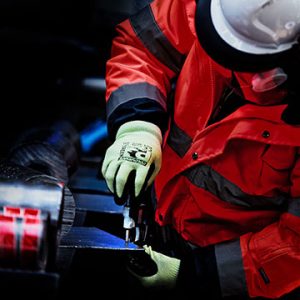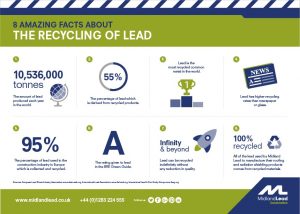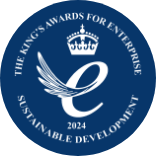Sustainable Manufacturing is Integral to Midland Lead’s Operations
Cranfield University PhD researcher, Arun Prabhakar has joined Midland Lead as the Technical Development Manager, and one of his main roles is to continue to improve the company’s sustainable manufacturing processes.
Originally from Kerala, India, Arun is an accomplished PhD researcher of Cranfield University and has a sound knowledge of manufacturing and sustainability. Arun started working with Midland Lead as a student in 2015, and it was clear from the beginning that he had an incredible ability to approach complex and demanding technical challenges and translate them into solutions that improve sustainable manufacturing processes. We continued to work with him as an associate of the Knowledge Transfer Partnership at Cranfield University and now we are proud to welcome Arun as our technical development manager.
 As part of his association with Cranfield University’s Knowledge Transfer Partnership, Arun was invited to present a paper at the TMS Conference in Phoenix, USA last year. The document ‘Improving Energy Efficiency in Direct Method for Continuous Casting of Lead Sheets’ tackled the subject of energy consumption with respect to comparable lead processes and outlines evidence that our direct casting manufacturing process is more energy efficient when compared to our UK competitors. In addition, this paper demonstrates Arun’s deep understanding of being able to effectively analyse production and energy processes with precision, along with the technical knowledge of lead as a useable product for construction and other sectors.
As part of his association with Cranfield University’s Knowledge Transfer Partnership, Arun was invited to present a paper at the TMS Conference in Phoenix, USA last year. The document ‘Improving Energy Efficiency in Direct Method for Continuous Casting of Lead Sheets’ tackled the subject of energy consumption with respect to comparable lead processes and outlines evidence that our direct casting manufacturing process is more energy efficient when compared to our UK competitors. In addition, this paper demonstrates Arun’s deep understanding of being able to effectively analyse production and energy processes with precision, along with the technical knowledge of lead as a useable product for construction and other sectors.
Managing Director Boudewijn Tuinenburg added; “Our commitment to keeping our operations as environmentally efficient as possible is what initially led us to approaching Cranfield University. We wanted to engage with a PhD student from the Sustainable Manufacturing Systems centre which has an excellent reputation.
“Since Arun joined us, he has been undertaking a number of key research projects on the manufacture of lead and his work will form an important part of how we operate into the future. We are very excited to be working with Arun and looking forward to how we can further implement advanced technologies in our end-to-end manufacturing processes.
Sustainability
We recognise the fact that the manufacturing industry has a negative impact on the environment, that’s why we have always been committed to working on new ways of how to minimise the negative environmental impact through continuously improving our production operations. This includes conserving energy, looking at every aspect of our manufacturing processes and reducing waste – in fact here at Midland Lead we are very proud of the fact that we use every bit of lead that comes onto site.
With this in mind, one of the projects that Arun is involved in is to help manage our energy audits to ensure we are maintaining our strict energy efficient operations. Arun said; “The fabrication process plays a major role in how we use and conserve energy now and into the future. It is imperative that we understand and apply new processes to continue to make efficiencies using advanced technology.
“By the nature of the product our manufacturing process is energy efficient. Lead has a relatively low melting point of 327.5℃, therefore less energy is used in manufacturing compared to some alternative lead products. However, we are exploring how we can further optimise the melting and refining process that will have a positive impact on our energy consumption.
“Midland Lead’s ongoing commitment is a great example of how a company should apply their ongoing responsibilities to sustainable manufacturing. This ongoing issue of how we can reduce waste and minimise negative environmental impact whilst conserving energy and natural resources, is something that we are hoping to lead the way now and into the future.”
100% Recycled
 Lead is the most recycled common used metal in the world, and we are committed to creating a sustainable future. As well as the work that Arun and the team are doing with regards to improving our energy efficiencies, we only use 100% recycled lead, reducing the requirement to source raw materials.
Lead is the most recycled common used metal in the world, and we are committed to creating a sustainable future. As well as the work that Arun and the team are doing with regards to improving our energy efficiencies, we only use 100% recycled lead, reducing the requirement to source raw materials.
Boudewijn Tuinenburg concluded; “Cranfield University is well known for its knowledge of sustainable manufacturing techniques and Arun brings with him a wealth of technical expertise.
“Together they have helped Midland Lead demonstrate that we are committed to making strides forward in our approach to sustainable manufacturing. Every organisation should be aware of the impact they have on the environment. To this end, I would urge every organisation to constantly review their environmental policies. This encourages businesses to then make steps to improve practices that reduce the negative impact they may have on the environment. This it is not something that we should ever leave until tomorrow.”


